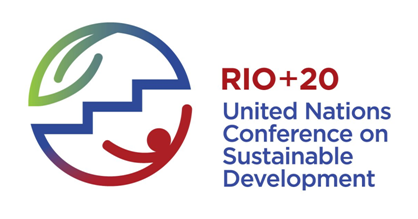 |
25 June 2012 - The Rio+20 event `Green Innovation in Tourism´,
co-hosted by the Organisation for Economic Co-operation and Development (OECD), the United Nations Environment Programme (UNEP), and the World Tourism Organization (UNWTO) with the support of the Brazilian hosts gathered together 300 international tourism experts to examine the benefits of a more sustainable global tourism sector.
“The definition of competitiveness in tourism is closely linked with three objectives: development, inclusion and conservation,” said the Minister of Tourism of Brazil, Gastão Dias Vieira, opening the `Green Innovation in Tourism´ event. “There can be no economic growth in tourism without sustainability, without conservation of natural resources and without incentives to citizenship”.
|
|
The Smart Move campaign perfectly embodies this objectives, as buses and coaches offer an optimal solution to most mobility challenges facing modern societies, including climate change, road safety, connectivity, social inclusion and congestion, while giving back to communities with billions of day excursions, weekend and educational trips, plus vacation trips to all kind of destinations that provide essential income for many tourist towns and remote sites as well as millions of jobs.
Event organizers themselves have chosen buses and coaches as the preferred RIO+20 transport mode, for obvious environmental, flexibility, capacity and safety purposes.
The event highlighted that shifts in tourism practices can produce major benefits, stimulating change towards greater sustainability within the tourism and related sectors. Presentations demonstrated that an increased focus on sustainability - in particular, green innovation, can lead to more jobs and reduce environmental impacts, cutting costs and increasing competitive advantages for companies and destinations while enhancing the visitor experience.
Alain Dupeyras, Head of the Tourism Unit, OECD Centre for Entrepreneurship, said “A more strategic approach to fostering green innovation in tourism will require greater policy co-ordination, for example, to improve access to finance that supports the green innovation efforts of small and medium enterprises”.
“Being green is often associated with increased costs for businesses. However, the essence of innovation is to identify least cost opportunities and solutions, decoupling tourism growth from resource use and environmental impacts and using resources more efficiently. Green innovation in tourism can improve existing business models, leading to positive results to companies, customers, public authorities and local communities through job creation and better living conditions” said Arab Hoballah, UNEP Chief of Sustainable Consumption and Production Branch.
Márcio Favilla, UNWTO Executive Director for Competitiveness, External Relations and Partnerships said “With one billion international tourists expected to travel in 2012, it is more important than ever that we support green innovation as a catalyst of tourism’s sustainable growth.”
|














